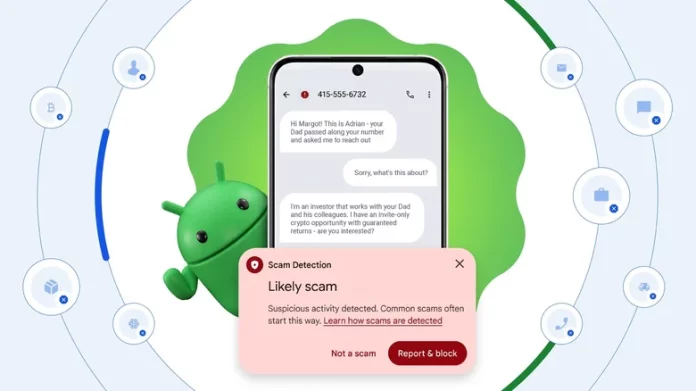Android phones—particularly Google’s own Pixel models—offer stronger defenses against scams than iPhones, according to a new report from Google’s Android Security team. Released on Thursday to mark the end of Cybersecurity Awareness Month, the report draws on internal research and third-party studies to highlight how Android users are better shielded from fraudulent messages and calls.
Google’s findings come amid a surge in increasingly sophisticated scams. In 2025 alone, cybercriminals stole over $400 billion worldwide, and less than 4% of victims managed to recover their losses—a stark reminder of how costly digital fraud has become.
Google’s AI-Driven Scam Defenses
Google emphasized that Android has “been on the frontlines in the battle against scammers for years,” leveraging artificial intelligence to identify and block threats before they reach users. According to the company, Android’s built-in protections intercept more than 10 billion suspected scam calls and messages each month.
Additionally, Android’s RCS (Rich Communication Services) system incorporates advanced safety checks that automatically block access for numbers linked to scams. Last month alone, Google prevented over 100 million malicious numbers from sending messages or calls through RCS.
Are Android Phones Really Safer?
To back up its claims, Google partnered with YouGov for a large-scale survey of over 5,000 smartphone users across the U.S., India, and Brazil. The results were striking:
- Android users were 58% more likely than iPhone users to report receiving no scam texts in the week prior to the survey.
- Pixel owners fared even better, with 96% saying they had not received a single scam text.
- iPhone users were 65% more likely than Android users—and 136% more likely than Pixel users—to receive three or more scam messages per week.
When asked about their phones’ built-in scam protections, Android users were 20% more likely to rate them as “very effective” or “extremely effective.” In contrast, iPhone users were 150% more likely than Pixel owners to say their phone was not effective at all.
Third-Party Validation
Independent cybersecurity research supports Google’s findings. Counterpoint Research compared the newest devices from leading brands—including Pixel, Samsung, Motorola, and Apple—and found that Android phones provide protection in nine key security categories such as email, browsing, and anti-theft measures. iPhones, by comparison, offered full protection in only two areas: messaging and app malware.
A separate evaluation by Leviathan Security Group examined four flagship devices: the iPhone 17 Pro, Pixel 10 Pro, Samsung Galaxy Z Fold 7, and Moto Razr+ 2025. According to Leviathan, Android devices, particularly the Pixel, delivered “the highest level of default scam and fraud protection.” Analysts credited Android’s advanced call screening, scam detection, and real-time authentication warnings as major differentiators. Of the 32 security features tested, the Pixel 10 Pro satisfied 30, while the iPhone 17 Pro met 21.5, the Galaxy Z Fold 7 scored 25.5, and the Moto Razr+ 2025 achieved 26.5.
A Growing Divide in Mobile Security
While both Android and iPhone platforms continue to evolve their security frameworks, Google’s latest report paints a clear picture of divergence. Google’s heavy investment in AI-driven scam detection appears to be paying off, setting a new benchmark for proactive protection in an era when online fraud is not just common but increasingly convincing.





